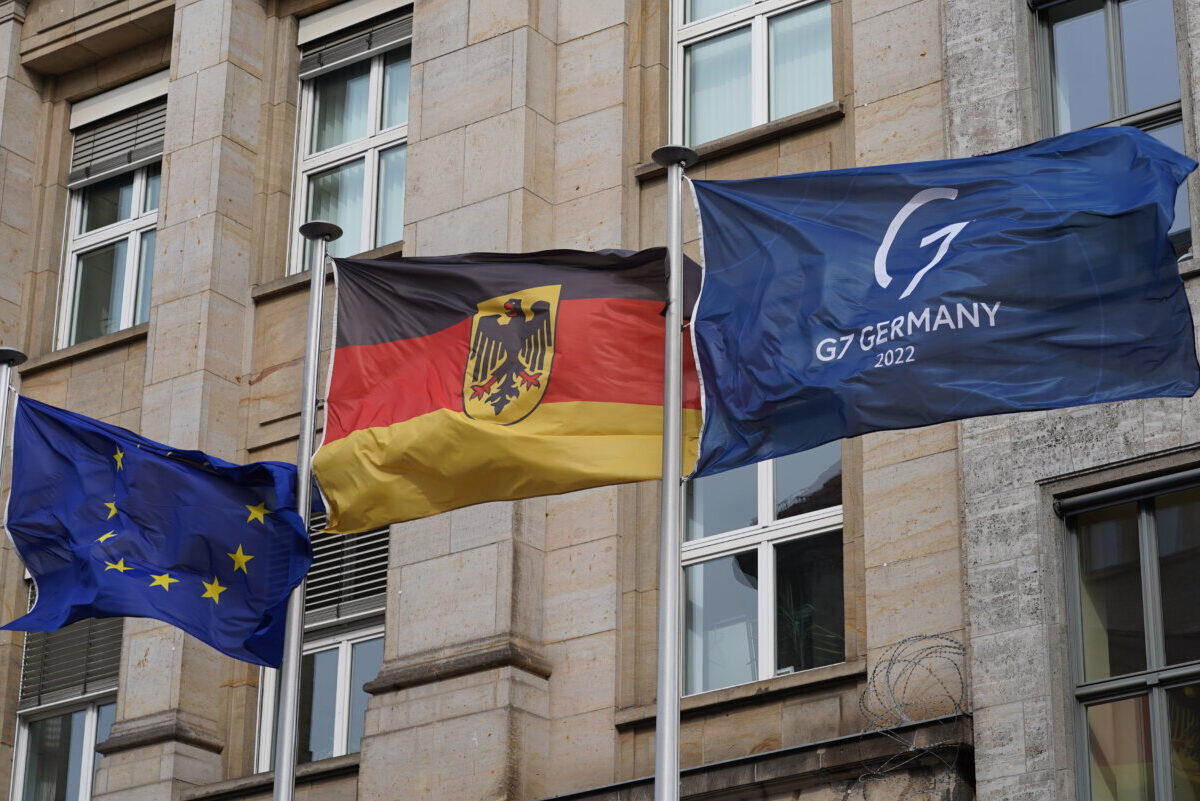The G7 remains a crucial forum to set the international reform agenda in various policy spaces, not least for financial system reform. Through it, European G7 members have the opportunity to bring the EU’s leadership on sustainable finance norms and standards to the international community and help advance the vision for a sustainable, resilient financial system at the heart of the EU’s Sustainable Finance Strategy. With the Leaders’ Summit approaching on 26-28 June in Elmau, Germany, coordination and agreement around four key outcomes are key.
For the third year in a row, compounding crises have shaken and destabilised the international financial system, amplified by the climate emergency. It is now clear that the risks stemming from the climate emergency both in terms of transitional and physical impacts pose a systemic challenge to the financial system. And the G7 countries have shown the power they hold in shaping financial norms: in 2021, the G7 agreed on a global minimum corporate tax rate, which was then joined by 136 countries and jurisdictions including most of the OECD and G20. More recently, the historically sweeping financial sanctions imposed by the G7 and their allies in response to the Russian invasion of Ukraine have led to double-digit GDP contraction and the partial expulsion of Russian from the international financial system.
It is therefore hugely consequential that the G7 has laid the basis for improving the resilience and sustainability of the financial system with last year’s decision to make the disclosure of climate-related financial risks mandatory.
E3G has outlined in a briefing four areas in which the G7 needs to make process this year to bring a sustainable, resilient financial system closer to reality. This is an opportunity for the EU to take the European idea of a financial system onto the international stage and work toward a joint global vision for a truly sustainable and resilient global financial system, better leveraging its economic, market and regulatory power.
- Accelerate the clean energy transition by committing to rapid phase-out of subsidies and investments relating to fossil fuels: G7 countries need to scale investment into renewable energy solutions and energy efficiency, not least for Europe to reduce its dependence on Russian gas deliveries. The continued subsidising of fossil fuels, and the consequential distortion of energy markets, needs to be addressed as well. Phasing out harmful subsidies that expand demand for fossil fuels, while cushioning the social impact of such measures, is a crucial element of a sustainable financial system.
- Commit to narrowing the trillion-dollar sustainable infrastructure investment gap: Without mobilising additional amounts in the scale of trillions for developing and emerging economies’ transition to climate neutrality, the global climate targets will not stay in reach. Multiple investment initiatives, ranging from the Glasgow Finance Alliance for Net Zero (GFANZ) to the EU’s Global Gateway programme are looking into mobilising private sector capital for investments in developing and emerging economies. However, without dedicated financial commitments from G7 member countries and the EU, such initiatives are at risk of underdelivering. Here, European G7 countries must show a path for the club to coordinate and work together on mobilising investment.
- Outline specific next steps towards establishing net-zero financial systems and supporting international convergence: As the G7 already committed to the establishment of net zero financial system, the group needs to now show the concrete steps to take. The EU countries should not shy away from bringing the joint experience from the EU’s Sustainable Finance Strategy into the picture and working with the other members on a joint understanding of the shape and rules of net-zero financial systems.
- Commit to implementing reforms which will reduce climate-related financial instability: As pressure from climate change is intensifying on the financial system, further work is necessary to adequately reflect this risk in the decision making of financial actors. This includes also broadening the mandate of central banks, reforming prudential regulation and working toward a joint set of reporting standards for sustainability and climate-related risk disclosure.
The G7 Finance Ministers Communiqué from May 20th indicated some initial progress, but it is now key for the remainder of the German presidency to secure substantial progress on the above points.
The EU’s sustainable finance agenda has implications far beyond its own jurisdiction: see for example our blog on the geopolitical role of the EU’s taxonomy in this week’s newsletter. The European members of the G7 must therefore seize the opportunity of the upcoming summit to advance critical outcomes for a sustainable, resilient and inclusive financial system that delivers for Europe – and beyond.


